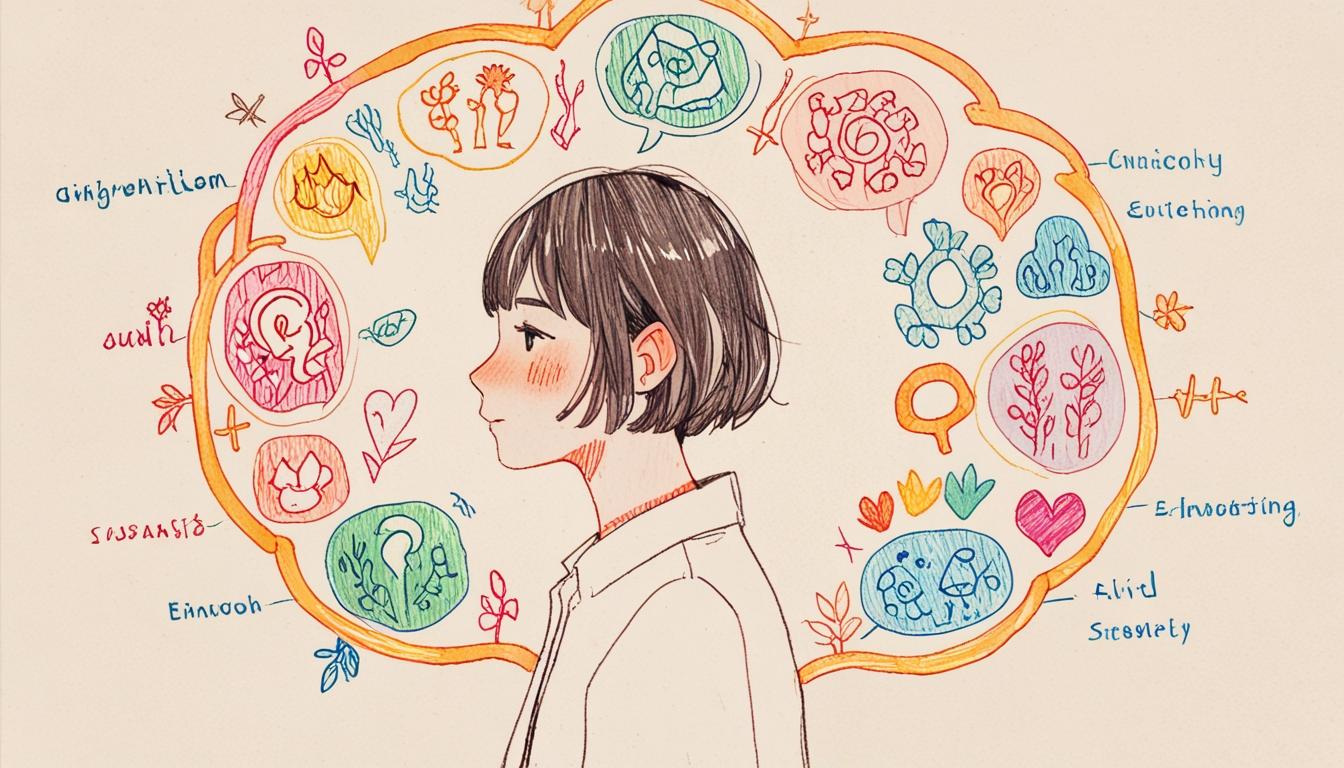In a groundbreaking approach to address the sensitive subject of adult virginity, Channel 4's new series "Virgin Island" sets the stage for an exploration of intimacy, aiming to aid 12 individuals, all aged between 22 and 30, in losing their virginity on camera. The participants, many of whom have experienced emotional barriers or past traumas related to intimacy, will work alongside a team of therapists, sex coaches, and, notably, sex surrogates. This unusual support system aims to facilitate personal breakthroughs in a highly public but potentially healing context.
The show's sex surrogates are Andre Lazarus, a polyamorous relationship coach and former Marine, and Kat Slade, a choreographer and reiki practitioner. Their roles go beyond that of traditional therapists, as they are prepared to engage physically with participants in ways that are deemed necessary for those struggling to connect on an emotional level. This aspect of the show, while controversial, has been defended by experts such as Celeste Hirschman and Dr. Danielle Harel, who co-founded the Somatica Institute. They criticise conventional media portrayals of sex, arguing that unrealistic expectations can be damaging. “If we portrayed sex that was more realistic, more connected... it might be a boon," Hirschman remarked, hinting at the limitations of current sexual representations in popular culture.
The statistics surrounding virginity in younger generations are revealing; research from University College London indicates that one in eight 26-year-olds have yet to engage in sexual intercourse, illustrating a marked increase from previous cohorts. Such data suggests that many young adults face challenges in achieving intimate connections, often stemming from societal pressures or personal histories. During "Virgin Island," participants are supported through various therapeutic approaches, including one-on-one coaching and surrogate partner therapy. These strategies aim not only to foster intimate relationships but also to address underlying emotional issues that may have hindered previous experiences.
Andre Lazarus, who openly shares his traumatic past, highlights the importance of understanding virginity as a part of one’s life story rather than a problem that needs solving. “Virginity isn’t a pathology; it’s just part of someone’s lived experience,” he asserts. His personal journey reflects a desire to help others reconnect with their sexuality in a safe and affirming environment, especially those who carry the weight of previous trauma or societal stigma. Moreover, he emphasises that sexual experiences do not need to culminate in orgasm to be deemed successful, advocating for a more holistic and gradual appreciation of intimacy.
Similarly, Kat Slade’s background in somatic dance underscores her belief in exploring sexual experiences through a nurturing lens. She notes that surrogate partner therapy can create a safe space for individuals to re-engage with their bodies and desires, encouraging them to navigate their first sexual experiences with guided support. For Slade, helping clients rediscover pleasure and intimacy is paramount, particularly for those who have faced significant barriers.
Despite the innovative framework of "Virgin Island," surrogate partner therapy remains a topic mired in ethical debate. Experts have called for greater clarity regarding the practice's training, boundaries, and ethical implications. Questions persist about the emotional connections that may develop between surrogates and clients, prompting discussions on the necessity of clear professional boundaries and the role of therapists in mediating these relationships. Such concerns highlight the delicate balance between providing therapeutic support and maintaining ethical integrity.
In a society where discussions around virginity and intimacy can often lead to feelings of shame or isolation, shows like "Virgin Island" aim to normalise and destigmatise the experiences of those who find themselves navigating these complexities later in life. By showcasing personal stories of vulnerability and growth, the series invites viewers to reconsider their own perceptions of intimacy, shedding light on the diverse journeys individuals take toward embracing their sexuality.
As the show unfolds, it promises to present not just a narrative of physical encounters, but also a deeper exploration of connection, self-discovery, and the varied paths people take in pursuit of love and intimacy in contemporary society.
Reference Map:
Source: Noah Wire Services
